Imgur user MissEpona shared photos of her lifestyle, titled “Real-life Red Dead Redemption: More takes from a wilderness camp cook”, and it looks like those fascinating adventure movies!

I do freelance cooking work for different wilderness outfits in Montana. I’ve been horseback riding for over 20 years and backpacking for a long time.
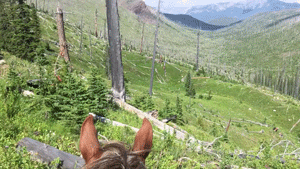
A lot of people have asked how I got into this work. It’s a very small niche industry and you generally need to know someone to get into it. I took a class on mule packing, a dying art of using stock to pack equipment into remote, roadless areas. Because of my previous horse and wilderness skills, I was offered a job opportunity to join an outfit.
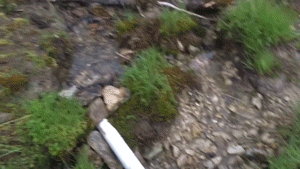
The work is hard. Horseback riding for hours is physically demanding if you’re not in riding shape, and the hours are long. In this clip, I’m collecting water to haul back to camp for dishes and cooking.

Weather conditions in the mountains can change rapidly. We ride in rain, wind, snow, and the blazing sun. Because we operate in a federally designated wilderness area, no motorized or mechanized transport or tools are allowed. That means everything needs to be packed in on stock: mules and horses.
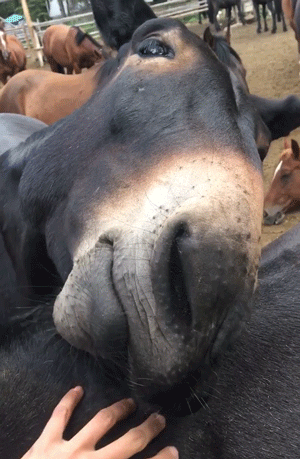
Mules are the offspring of a male donkey and a female horse. Like all equines, their individual personalities and temperaments vary. Some can be grumpy, mean, or stubborn. Others can be puppy dog sweet. This one is helping me give scritches to his herd mate.
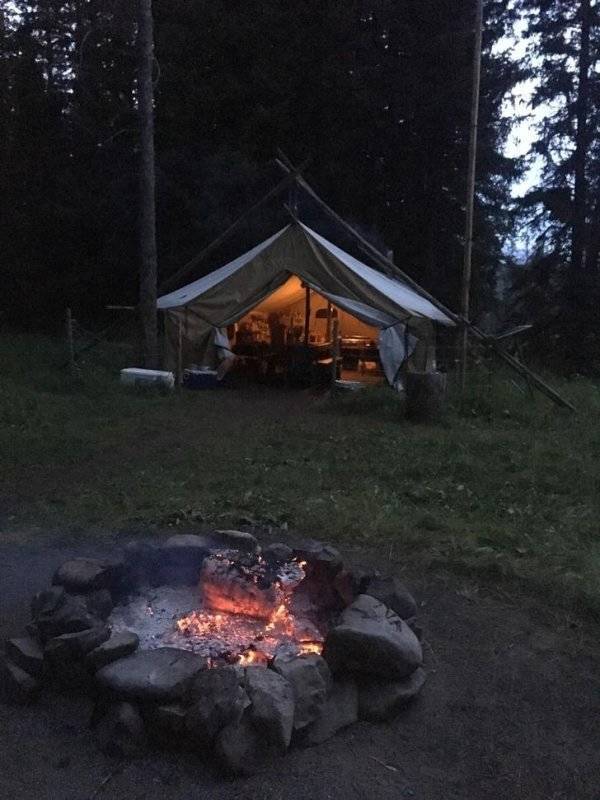
During the summer, this is my office when we’re in the main camp. It’s a large canvas wall tent surrounded by a fairly high voltage battery-powered electric fence to keep bears out.
Because of the Wilderness designation, every part of the camp must be assembled at the beginning of the season and disassembled and packed out at the end of the season as no permanent structures are allowed. It can take close to 50 loads to get this camp out.
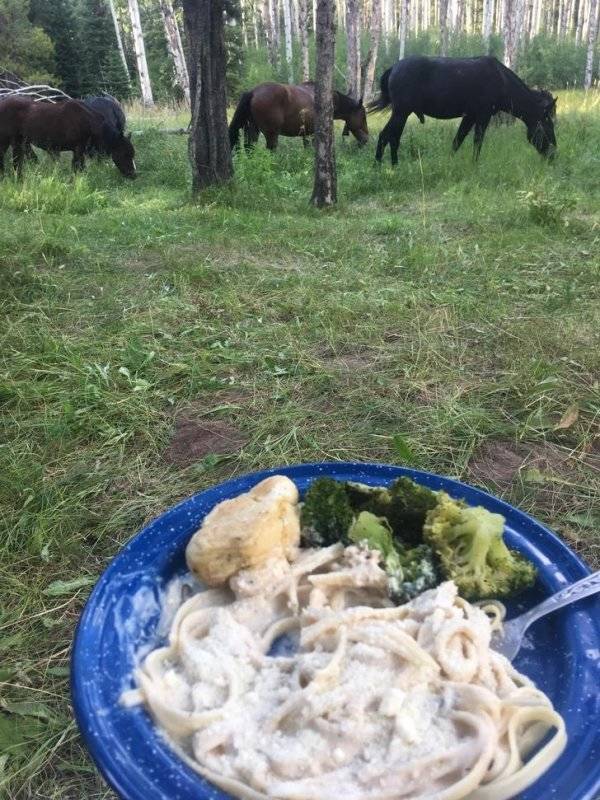
When we are roving (that is, riding for most of the day and camping in a new location each night,) meals are hearty but simple. This one is just a basic chicken alfredo.
The stock is eating grass. They’re free grazed, which means we set them loose with a couple of the dominant animals with bells on so we can locate them. The wranglers keep watch overnight with a horse tacked up to ride after them if the herd goes on the move unexpectedly.
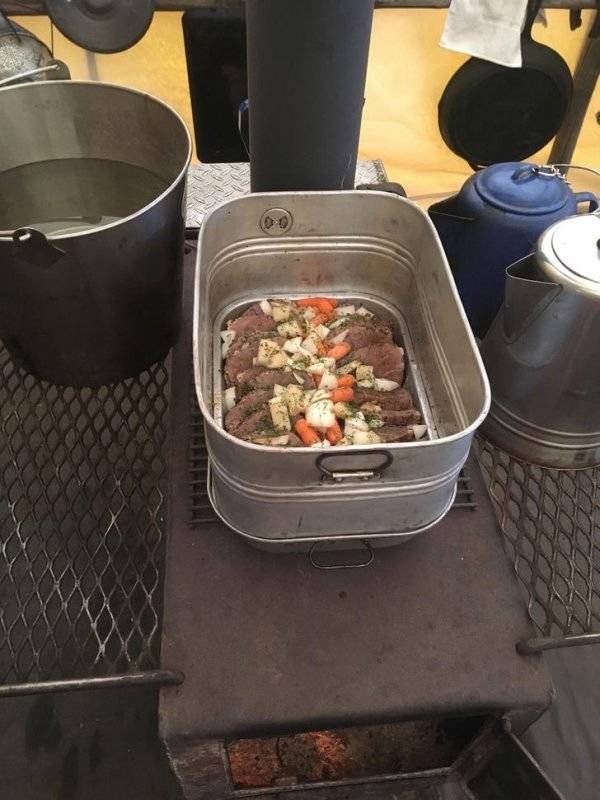
When we are in the main camp, I have more space and equipment available. I cook on a propane grill or the wood-stove. This dinner was roast beef and veggies. Coffee is always on.
Because chainsaws are not allowed, all firewood is harvested by hand with crosscut saws and hauled back to camp by mules or horses.
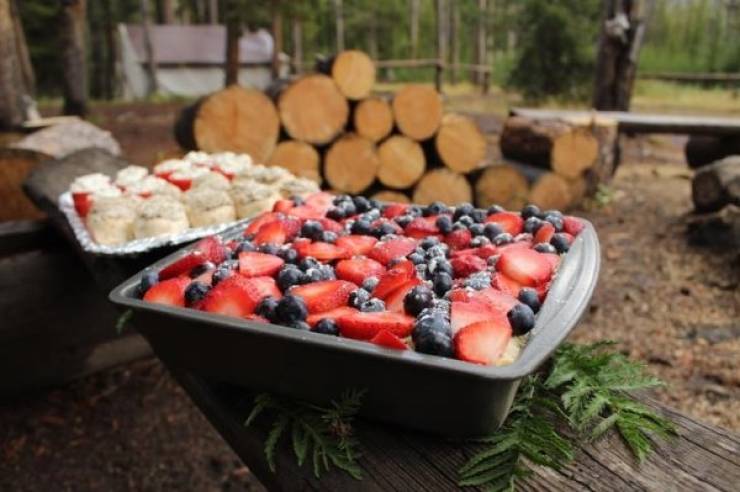
Some outfits give me creative freedom on the menu. At this camp, I’m fully in charge of menu planning, grocery shopping, and all meal prep. Here, I’ve made some goat cheese stuffed tomatoes, sausage stuffed mushrooms, and a berry tart for appetizers and dessert, respectively.
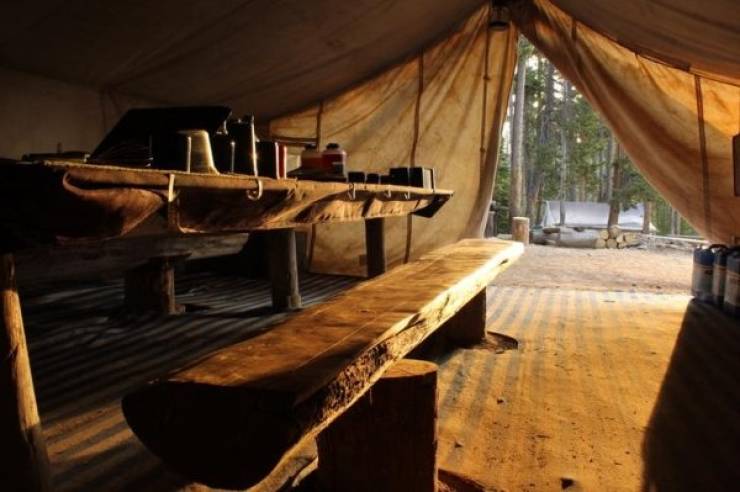
During the fall, I cook for hunting camps. I rarely see my coworkers or clients in the daylight. The hunters leave before sunrise and don’t return until after sunset, so that means I’m up at 3 or 4 AM to prep coffee, breakfast, and pack lunches.
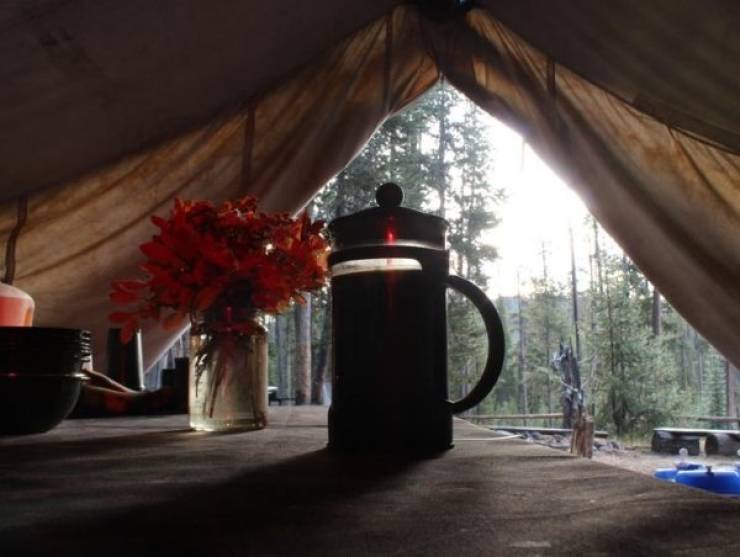
After everyone leaves, I do the dishes with the water I’ve kept on the wood-stove. Usually, I’m finishing dishes as the sun crests the mountains. I’ll have my own breakfast and say hello to the horses before going back to sleep for a few hours.
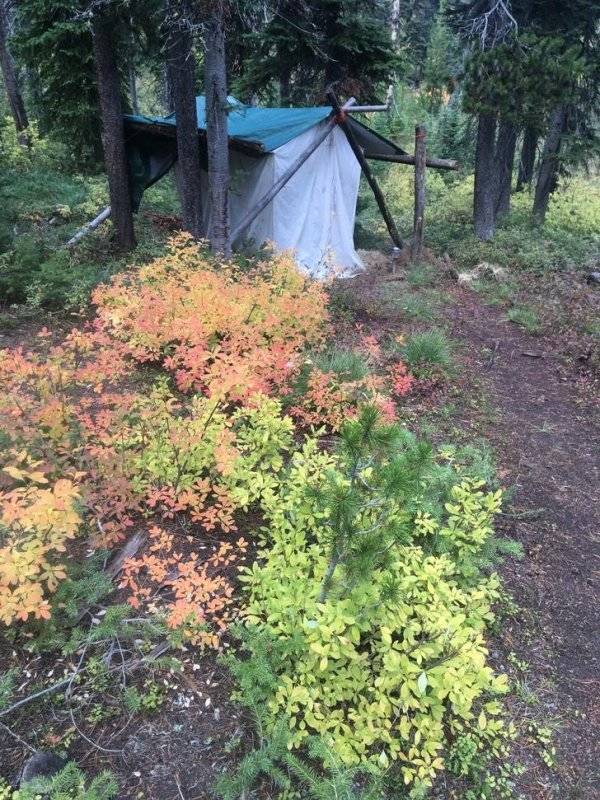
There’s no cell service, electricity, or indoor plumbing. There is, however, this very fancy latrine. It’s a six-foot deep hole with a wooden box with a toilet seat over it. On frosty mornings, you don’t want to be the first one to use it.
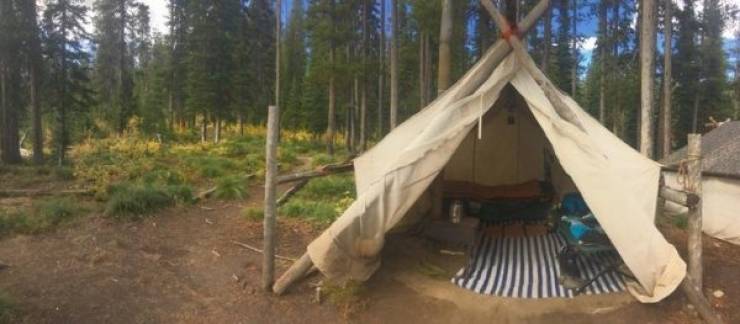
This is my suite. We sleep on cots with a pad. Before I got my super thick -35F bag, I’d use my ultralight backpacking sleeping bag. During the summer, it sufficed, but when the leaves started to turn and colder weather rolled in, I found myself shivering.
Because the cook is the first one awake and the last one the bed, I’ve saved some time by getting that big fat hunting bag. I’ve been out there in -15F weather and don’t even bother starting my fire some nights because that bag is so toasty once I’m in it.
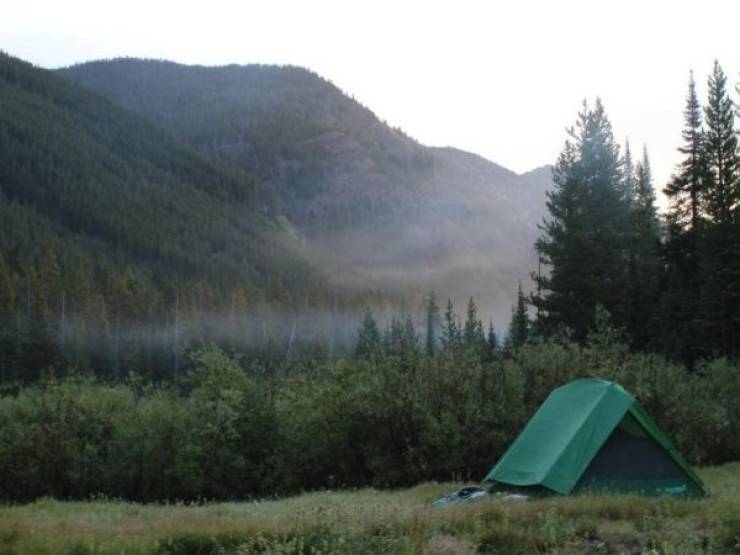
During long roving trips, we’ll sometimes cross mountain passes. We make sure to give the horses plenty of rest after such a tough climb. These mountain horses though, they’re tough and in superb condition to handle it.
On roving trips, we camp in these smaller pup tents. I’ve listened to thunder rumble and rain pelt these while falling asleep during summer thunderstorms. While comfortable enough, these make my cot in my wall tent in the main camp feel like a luxury hotel room.
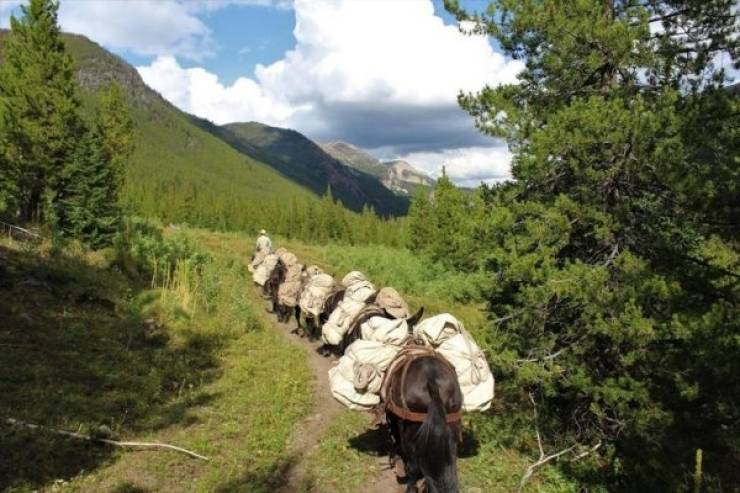
It takes experience and skill to safely pack animals in the wilderness. If you make a mistake, it’s easily possible to kill or injure yourself or your stock.
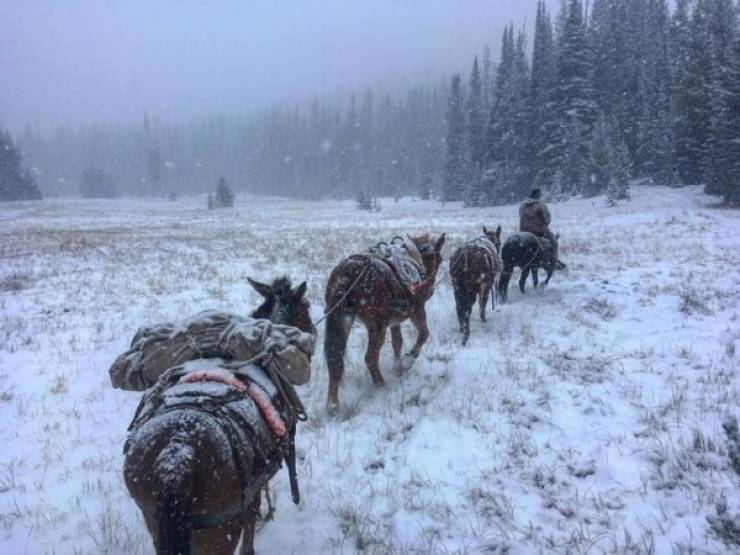
While there are people who have learned through trial and error, it’s flat stupid in my opinion to go out there without a more experienced packer to teach you the ropes. An emergency life flight or search and rescue mission is NOT cheap.
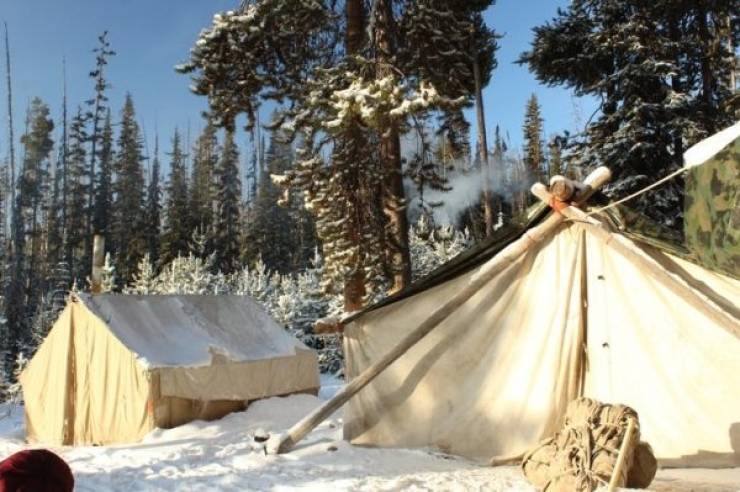
Your biggest risks out there are hypothermia, dehydration, and trips/slips/falls. If you’re considering going to the backcountry, learn about the thermal properties of fabrics and how to keep yourself safe.

More slow-roasting goodness.
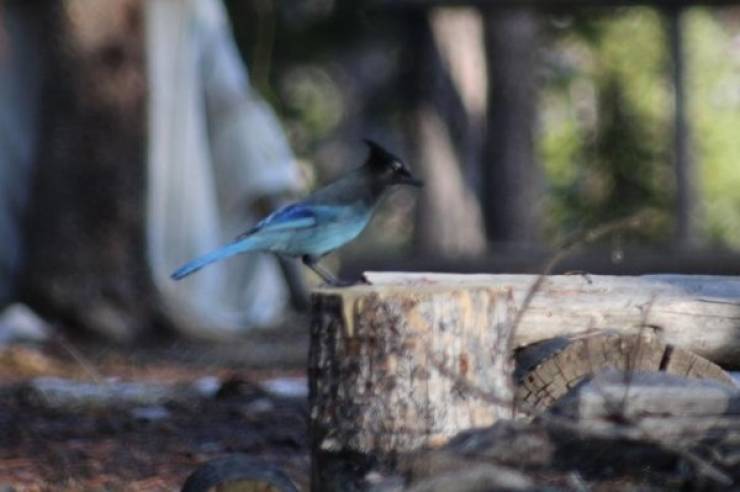
If I’m quiet and observant, I meet many different forest creatures. This guy is a Stellar’s Jay or Mountain Jay, a member of the corvid family related to crows and ravens. I learned to recognize his calls, so even though he was shy, I could hear him arrive in the morning and sneak my camera lens out the front flap of the kitchen tent to snap him.
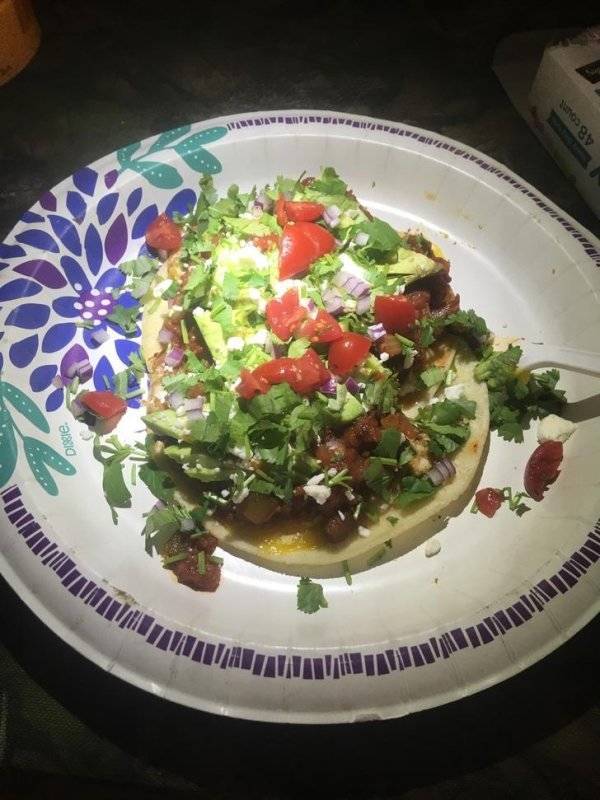
Setting up camp can take a couple of weeks, but we tear down camp in a matter of days. Towards the end, I’m playing Chopped: Mountain Edition to make meals for the crew out of what we have left. I managed to eek out some huevos rancheros on this one.
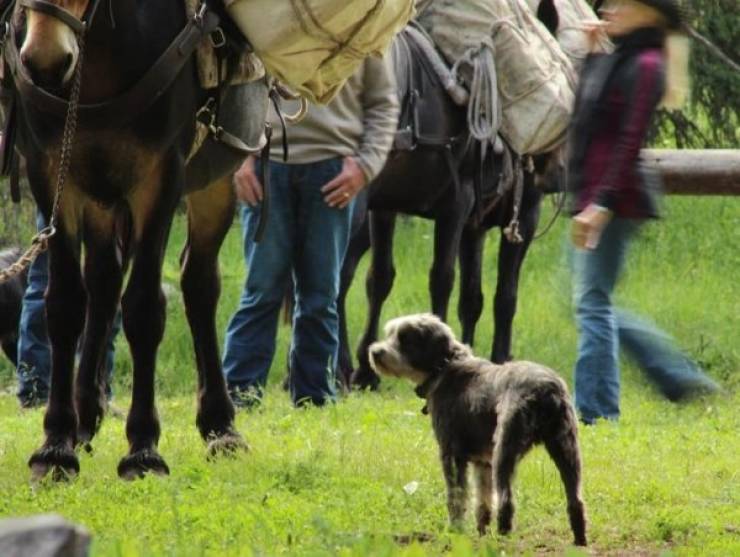
The most interesting part about camp, to me, is the kind of people you end up meeting. It’s not an easy life, and the people who last long enough in this line of work tend to be tough folks with wild stories.
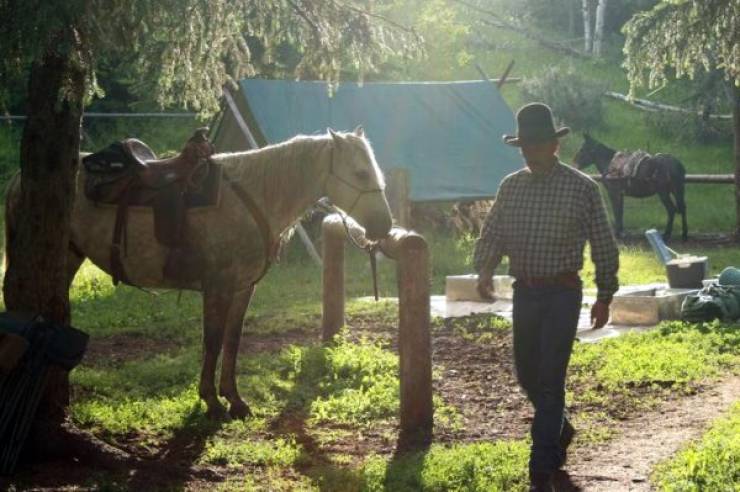
The feller in this photo has run pack strings in the Grand Canyon and worked with sled dogs in Alaska in the offseason. I’ve heard stories of plane crashes, grizzly encounters, horses falling off cliffs, and running into armed weirdos.
 Barnorama All Fun In The Barn
Barnorama All Fun In The Barn